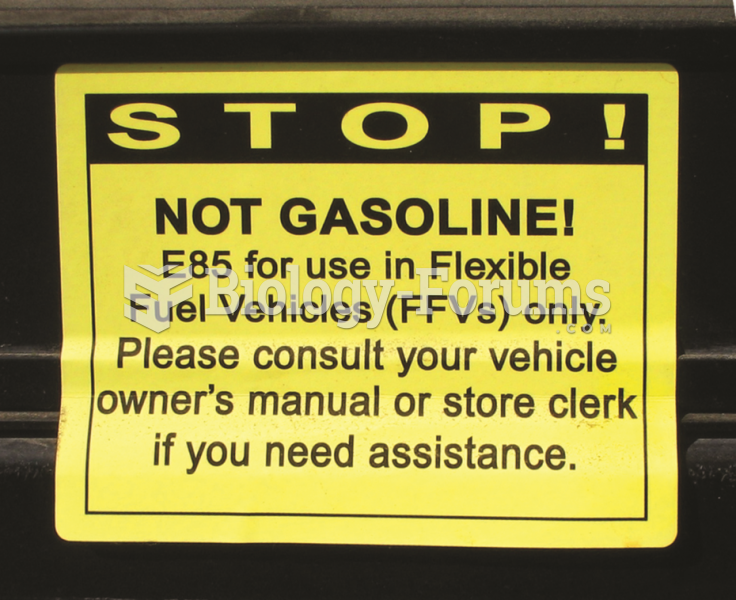|
|
|
In the United States, an estimated 50 million unnecessary antibiotics are prescribed for viral respiratory infections.
The average older adult in the United States takes five prescription drugs per day. Half of these drugs contain a sedative. Alcohol should therefore be avoided by most senior citizens because of the dangerous interactions between alcohol and sedatives.
Aspirin is the most widely used drug in the world. It has even been recognized as such by the Guinness Book of World Records.
The Centers for Disease Control and Prevention (CDC) was originally known as the Communicable Disease Center, which was formed to fight malaria. It was originally headquartered in Atlanta, Georgia, since the Southern states faced the worst threat from malaria.
Stevens-Johnson syndrome and Toxic Epidermal Necrolysis syndrome are life-threatening reactions that can result in death. Complications include permanent blindness, dry-eye syndrome, lung damage, photophobia, asthma, chronic obstructive pulmonary disease, permanent loss of nail beds, scarring of mucous membranes, arthritis, and chronic fatigue syndrome. Many patients' pores scar shut, causing them to retain heat.
 In 1879 an army officer founded the Carlisle School in Pennsylvania to “civilize” young Indians. The
In 1879 an army officer founded the Carlisle School in Pennsylvania to “civilize” young Indians. The
 A warning sticker on an E85 pump warning to only use this fuel in vehicles designated as flexible ...
A warning sticker on an E85 pump warning to only use this fuel in vehicles designated as flexible ...





